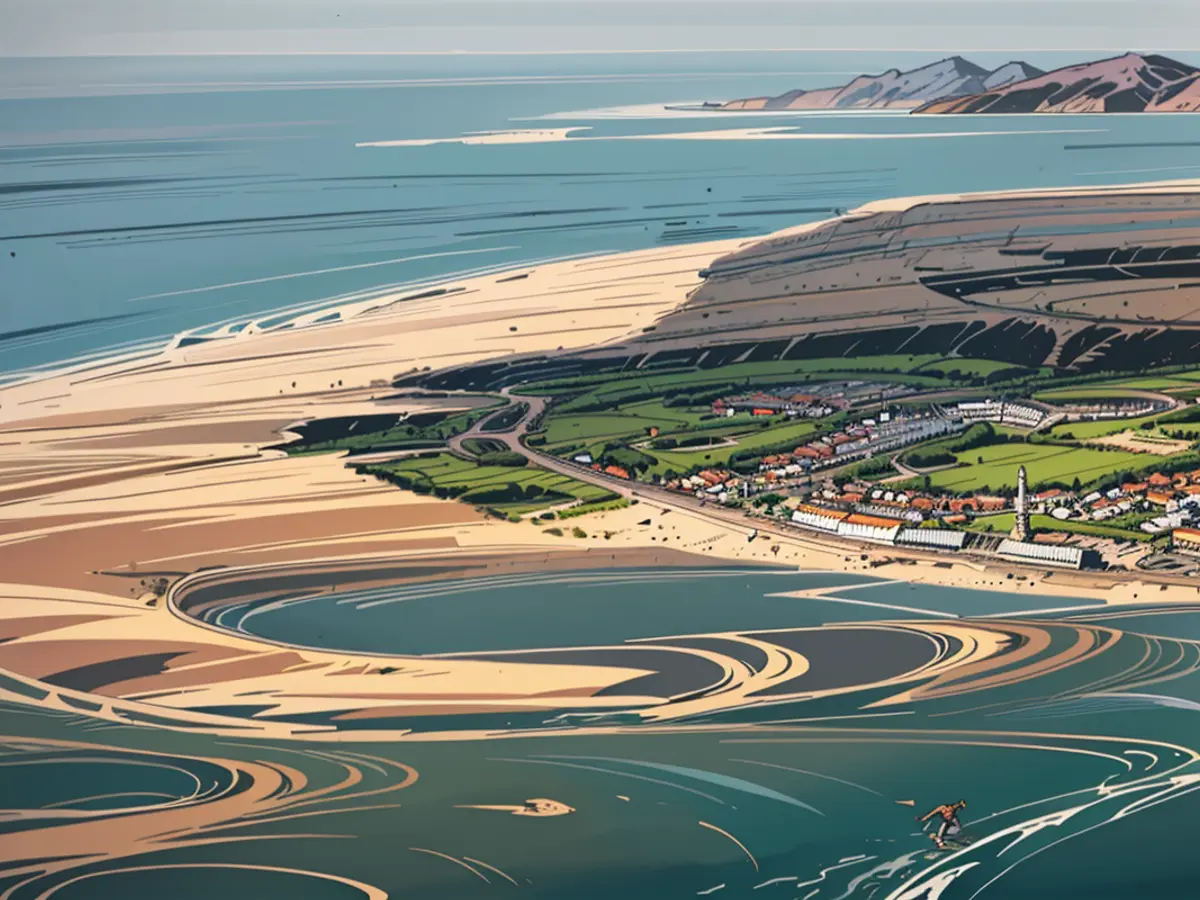- Environmental organization Greenpeace discovers additional stone data on Borkum
Eco-activists from Greenpeace have allegedly stumbled upon additional species-rich rock formations in the North Sea, near a proposed cable route for the contentious gas extraction project off Borkum Island. The eco-warriors released images of the discovery site, showcasing rocks adorned with "atypical reef vegetation" such as sea thrift, anemones, and moss creatures. Moreover, the environmentalists reported discovering endangered species and flora during their dive in late August within German territorial waters. The reported discovery sites are said to be merely twenty meters away from the proposed cable route.
Greenpeace seized this moment to urge for halting the gas extraction plans once more. "Climate Minister Robert Habeck possesses the power to halt this damaging gas project directly within this marine area of value," asserted Greenpeace energy expert Anike Peters in a statement.
Court Battles over Power Cable
The gas extraction and required power cable have been the subject of a prolonged tussle. The Dutch energy firm One-Dyas plans to utilize the cable to supply a gas extraction platform with wind power from the adjacent offshore wind farm Riffgat. The Lower Saxony State Agency for Water Management, Coastal and Nature Conservation (NLWKN) had approved the cable in 2022. However, German Environmental Aid (DUH) challenged this decision in court. The environmentalists harbored concerns that the cable could irreversibly damage protective reef structures. Recently, the Administrative Court in Oldenburg decided that the power cable should not be laid temporarily. A formal court proceeding on the lawsuit is yet to occur.
Greenpeace had previously discovered protective rock reefs nearby and scientifically documented them last year. However, it remains uncertain whether the recent stone formations are also protective rock reefs.
Environment Ministry Requires Further Examinations
The Environment Ministry in Hanover informed dpa that Greenpeace's recent discoveries along the cable route were unbeknownst to them. "Nevertheless, they strengthen the perception that further investigations are necessary along the proposed cable route and potential alternative routes before a nature conservation exemption can be granted," a ministry spokesperson said. A technical evaluation of the reported findings is still pending. Therefore, Greenpeace is requested to share all relevant data with the responsible authority, NLWKN.
Borkum's Green-Landtag deputy Meta Janssen-Kucz urged One Dyas to ultimately concede, "It's quite evident that these are biotopes protected throughout Europe. Stone reefs akin to those near Borkum are unique habitats and should be protected. No cable may be laid where rare marine life resides at the bottom of the North Sea."
Greenpeace strongly advocated against the gas extraction plans once again, with energy expert Anike Peters stating, "Climate Minister Robert Habeck has the power to halt this damaging gas project directly within this marine area of value."
Following their recent discovery, Greenpeace urged all relevant authorities to conduct further investigations along the proposed cable route and potential alternative routes, as the Environment Ministry in Hanover acknowledged that the recent findings were previously unknown to them.








